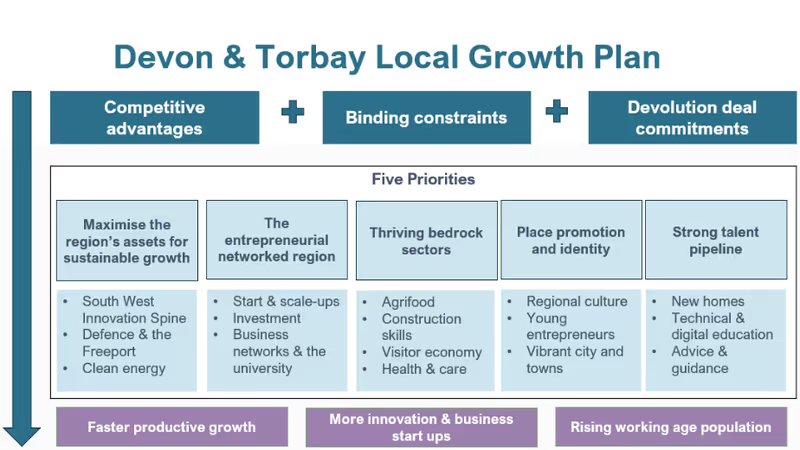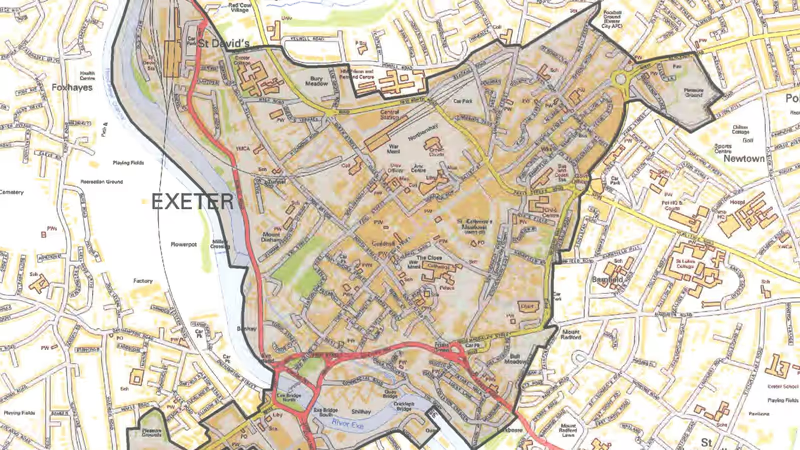Exeter’s employment rate – the proportion of adult residents aged 16-64 who work – is the second lowest in the south west for the second year running, according to figures published by the Office of National Statistics.
The city’s employment rate was 72.8% in the year to March 2023, having decreased slightly since last year. Only South Hams was lower.
The employment rate in Torridge is 87.4%, nearly 15% higher than in Exeter. The average employment rate across the South West last year was 78.4%, after increasing since last year.
Exeter has among the region’s lowest employment rates despite its working age population being proportionally much larger, at just over 68% compared with less than 61% across the South West.
Half the city’s residents are employed in around 65,000 jobs. Another 43,000 people commute into the city for work, 40% of the workforce, driving high levels of congestion on Exeter’s arterial routes. The city has the second highest travel to work population in the country.
Economic inactivity levels – the proportion of working age adults who are not employed but do not meet the criteria for being unemployed – remain higher in Exeter than across the South West, at 24.2% compared with 19.3%.
Working age adults are often economically inactive because they are studying full-time or retired, among other reasons.
The council commissioned comprehensive research last year that was intended to underpin Exeter’s post-pandemic approach to employment and skills.
It identified low and falling economic activity levels, particularly among the over 50’s and young people aged 20-24, as key reasons for the city’s ongoing recruitment challenges.
It said Exeter would need at least 3,500 more healthcare workers by 2030, which might be an underestimate “given the acute ageing population in Devon where Exeter provides a major health and care centre for the surrounding local authorities who all have rapidly ageing populations”.
The research found there were 6,000 healthcare vacancies in the area already.
At the same time it said Exeter’s apparently young population was belied by low graduate retention rates resulting from low pay, high housing costs and poor employment prospects.
Instead the city’s “very high inflows of 15 to 19 year-olds” is “mirrored by comparative outflows for ages 20-24”.
In response to a freedom of information request the university confirmed that 30,000 students were based at its Exeter campuses in 2022-23.
While this was a fall from the previous year, the 29,600 students remaining after distance learners are excluded made up 23% of Exeter’s population last year.
Two days before the employment rate statistics were published, the city council’s finance director warned its Executive committee that the council has so many staff vacancies that the money being saved on wages is disguising its poor income-generating performance, which would otherwise mean a service delivery shortfall.
In the same week city councillor Ruth Williams told a council scrutiny committee that not only was the council unable to recruit workers to collect the city’s bins it was also unable to recruit workers to deliver bins for other workers to collect.
The council’s recent decision to remove a quarter of the city’s litter bins was partly driven by a need to restructure its refuse collection services around fewer staff than it would like to meet demand.
There are now around 550 litter bins and 90 dog waste bins in the city, down from a total of around 800, but the council has already begun replacing some of the bins it removed after being pelted with complaints by unhappy residents.
The council’s corporate risk register confirms that “a rise in residents becoming economically inactive, particularly those in the 50+ age groups” and “low levels of graduate retention from the University of Exeter” are key challenges for the city’s economy.
The day before the employment rate statistics were published, it nevertheless celebrated its listing by a consumer magazine as one of twelve top UK retirement destinations. Council leader Phil Bialyk has since said that this is “more good news” for Exeter.








